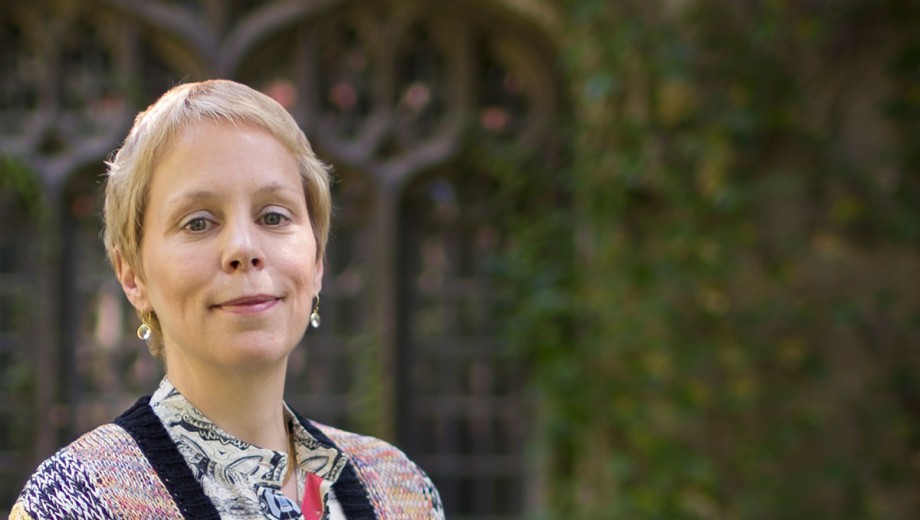The connection between Carolyn “Kay” Bucksbaum and Augusta Read Thomas grew out of a shared love of music. Out of that friendship, in turn, has grown the beginnings of a new opportunity for composers and music composition at the University of Chicago.
The two women met in the early 1990s, when Bucksbaum’s husband, Matthew, was chairman of the board of the Aspen Music Festival and Thomas was a composer in residence.
“She had great enthusiasm, and she really knew her way around music,” Bucksbaum says of Thomas. They became closer when Thomas relocated to Chicago, where the Bucksbaums lived, to serve as composer in residence with the Chicago Symphony Orchestra from 1997 to 2006.
 After Thomas joined UChicago in 2010 as University Professor of Composition in Music, she conceived an ambitious plan to develop a center for contemporary composition, with a regular program of distinguished composers in residence, postdocs, musicians in residence, and a permanent ensemble. Impressed by Thomas’s vision, Bucksbaum, a member of the Visiting Committee to the Division of the Humanities, wanted to help her make it a reality.
After Thomas joined UChicago in 2010 as University Professor of Composition in Music, she conceived an ambitious plan to develop a center for contemporary composition, with a regular program of distinguished composers in residence, postdocs, musicians in residence, and a permanent ensemble. Impressed by Thomas’s vision, Bucksbaum, a member of the Visiting Committee to the Division of the Humanities, wanted to help her make it a reality.
Matthew, who died in 2013, and Kay were longtime friends of the University—establishing the Bucksbaum Institute for Clinical Excellence at the University of Chicago Medicine with a transformative gift in 2011—as well as avid fans of classical music. The Department of Music will use Kay Bucksbaum’s 2015 gift of $300,000 to host a distinguished visiting composer in 2016–17, followed by a postdoctoral fellow in each of the two subsequent academic years.
The gift benefits the entire UChicago community as well as the visiting composer, who will teach a seminar on a topic of their choice, work with PhD and undergraduate students in the composition program, and oversee performances of their works.
Thomas says the University’s interdisciplinary nature will be a draw for composers, who will have the opportunity to work with UChicago faculty both informally and through the Franke Institute for the Humanities and the Gray Center for Arts and Inquiry. Equally, Thomas expects the visiting composer to be an asset to the UChicago intellectual community.
“People who have spent 30, 40, 50 years sculpting sound at the highest level are very special people,” Thomas says, “and also very interesting for a community like ours, where people have been sculpting science experiments, mathematical theorems, poems, and the like.”
The postdoctoral composers each will teach an undergraduate course, oversee performances of her or his music, and have time to compose new work. Postdoctoral positions such as the ones supported by Bucksbaum are rare, Thomas says, but essential to the future of classical composition.
“If we want artists to make great music, it takes time,” Thomas says. “It takes a lot of people helping and a lot of people believing in the transformative power of music.”
Thomas, Bucksbaum, and Dean Martha T. Roth, in fact, hope that more people believe in that power, and that this gift serves as “seed money,” as both Bucksbaum and Thomas say, for an endowment for the entire center.
As a music lover, Bucksbaum wants to help others enjoy it as well. She and her husband have been “supporting composers, musicians, and music at large for decades.”

